Хаас за Япония
Ромен Грожан:
Even though your race result in Sochi was suboptimal, you had a good weekend with pace throughout practice and qualifying. Can the momentum and key learnings from Sochi be applied at Suzuka?
Yes, I think so. I mean, we will keep working hard, keep trying to improve the car, learn as much as we can, and do the best job that we can. Suzuka is a great circuit and we’ve always been quite competitive there. I’m hoping it’ll be the same again this year.
How helpful was the team’s speed in Sochi for company morale, where the effort that’s been put forth throughout the summer finally paid some dividends?
It was great that we were competitive all weekend. The car felt good from FP1, which usually gives you a clear representation. Obviously, it was then painful to watch the race from hospitality, but it was really good to see that Kevin was managing to keep some fast cars behind with good pace. It was good.
You’ve been quoted as saying that Suzuka is your most favorite track in the world. Why?
It’s probably in the nature of the circuit. It’s high speed – there’s no room for mistakes – which is becoming more and more rare nowadays with the new circuits. There’s elevation to go with that speed, and it’s just a different shape from all the other tracks being a figure-eight with the bridge and the tunnel.
Beyond the racetrack, what is most often talked about at Suzuka is the passion its fans have. Can you describe the atmosphere at the track and the fervency Japanese fans have for Formula One?
Japanese fans absolutely love Formula One. It’s probably one of the only races on the calendar where you see the grandstands full from Thursday onward. Their passion for Formula One is huge, and they have a huge respect for it. It’s very special to see. You can tell it’s a big event when we go there.
When you leave Japan you’ll be gearing up for Haas F1 Team’s home race – the United States Grand Prix in Austin, Texas. Where do you want Haas F1 Team to be heading into that event?
It’s going to be good. It’s always a race we’re looking forward to. Obviously, it’s a busy week in Austin with a lot to do, but it’s always a good weekend. Let’s hope the car is competitive there. We haven’t been very successful in Austin in recent years, but I’m hoping that this year it’s going to be better and that we can have a good race. We want to show the fans we can do the job.
Кевин Магнусен: You had a good weekend in Sochi with pace throughout practice, qualifying and the race that resulted in a points-paying finish. Can the momentum and key learnings from Sochi be applied at Suzuka?
Yes, I think so. We had a good weekend in Sochi. We had good pace all the way through the weekend, which was nice. The car seemed to be in a good place and performing well. We managed to get a couple of points at the end – despite the penalty – so that was good.
How helpful was the team’s speed in Sochi for company morale, where the effort that’s been put forth throughout the summer finally paid some dividends?
The work that the whole team has done since the beginning of the season has been really good. We started off the season in a pretty good way, but we lost our way a little bit and I think we’ve had a tough streak of races. Now, it seems we’re slowly getting back on our feet. That’s great to see and a testament to the great work the team has done.
You’ve been quoted as saying that Suzuka is one of your most favorite tracks in the world. Why?
Suzuka is great because it’s just such a high-speed, flowing track. Formula One cars are great at high speed with the downforce we have. Any track that we go to that has high-speed corners, it’s always pretty good fun. We might have a good shot at some more points there. Our car’s usually good at high-speed circuits. Let’s see how it goes.
Beyond the racetrack, what is most often talked about at Suzuka is the passion its fans have. Can you describe the atmosphere at the track and the fervency Japanese fans have for Formula One?
I love the fervency that the Japanese fans have and I’m looking forward to seeing that come into play at the weekend. It’s something special for a driver to experience.
When you leave Japan you’ll be gearing up for Haas F1 Team’s home race – the United States Grand Prix in Austin, Texas. Where do you want Haas F1 Team to be heading into that event?
The United States Grand Prix is a fantastic race. I really like America. I like spending time there. For a new track, it’s a great one. Usually newer tracks are pretty boring – there’s a tendency for that, for sure. I think Circuit of the Americas has done a great job. I think other tracks should take notice of what they do.
Гюнтер Щайнер: You had a good weekend in Sochi where both Grosjean and Magnussen had pace throughout practice, qualifying and the race. Even though the outcome wasn’t ideal, as Grosjean was caught up in a lap-one crash and Magnussen received a penalty that dropped him from eighth to ninth, Haas F1 Team still came away with points. Can the momentum and key learnings from Sochi be applied at Suzuka?
Even having had a good race in Sochi, it doesn’t mean that this form will carry on. For sure, we’ll try to carry it on, but the car is very temperamental, to say the least, and we never know on any given weekend where we’ll end up. You’re always learning when you’re racing. Hopefully, we can carry that form into Suzuka and beyond.
How helpful was the team’s speed in Sochi for company morale, where the effort that’s been put forth throughout the summer finally paid some dividends?
Points always help. It helps to keep people going. It gives you confidence that you can still do it. Points and good results are always the easiest way to keep morale up in a team.
Many drivers – Grosjean and Magnussen in particular – claim Suzuka as their favorite track. When drivers come into a venue with confidence and a sense of being, does it allow them to attack more and perhaps provide more detailed feedback?
I think they always try to get the best out anyway, but Suzuka is a fantastic racetrack and it’s a challenge. I think on tracks like that, the motivation is just higher for them to do well. There’s enjoyment, too. I fully believe going around Suzuka fast is a very cool feeling. They can’t wait to get there and that always motivates them to do well.
Only five races remain on this year’s schedule. Has the season moved quickly for you or has it seemed to move a bit slower than in year’s past because of the amount of adversity you’ve had to work through with how the Haas VF-19s have performed on the track?
It’s been up and down this season. When you get a good result, you can’t wait to go to the next race, but when you have a few bad results in a row, you fear to go to the next race. Sometimes it goes very quick, and sometimes it goes very slow. When you’re having a bad race, those two hours seem like they’re dragging on for days. Overall, this year’s been very challenging for us. It’s gone by in the blink of an eye – we’ve only five races to go. It’s almost unbelievable.
When you leave Japan you’ll be gearing up for your home race – the United States Grand Prix at Circuit of the Americas (COTA) in Austin, Texas. Where do you want Haas F1 Team to be at that time and what will your thoughts be on that long flight back to North Carolina?
Austin’s great. It’s always nice to go to your home race. Everyone on the team loves being there, in Austin itself. How we treat it from a racing point – it’s the same. You always give it 100 percent and a little bit more. From that side, not a lot changes. The support has increased because people have got to know us a little more. We’re quite established in Formula One, even though this is only our fourth year. We have Haas Hill there at COTA – that’s an established event now. I think it’s getting bigger and bigger, which is fantastic.


























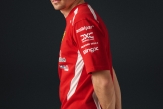
.jpg)






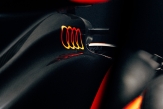
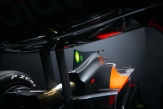









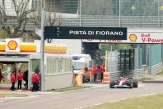

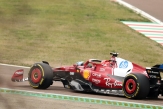

02/12/2025 от Огнян Тенчев (drJeckyll), няма коментари